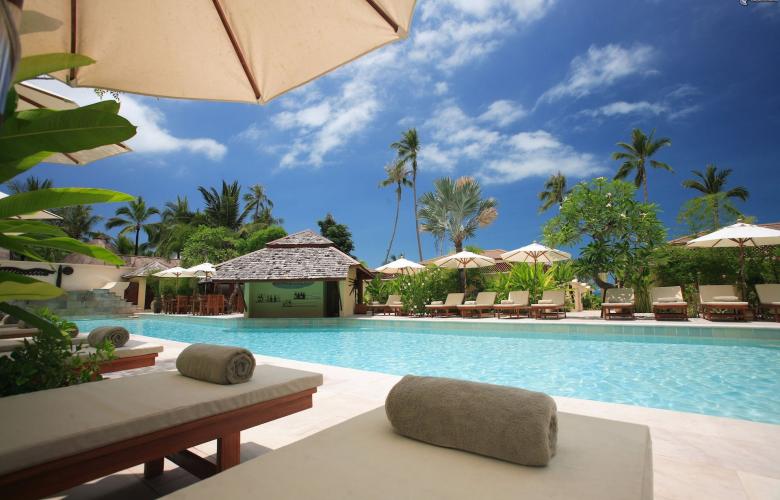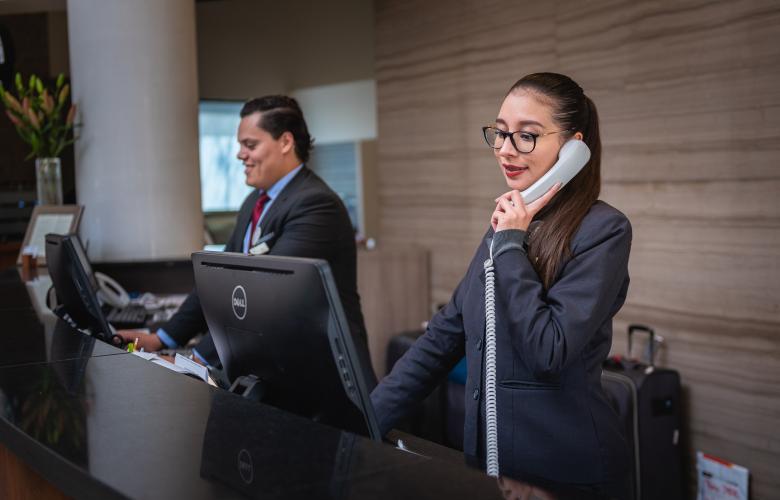5 Strategies to help hoteliers win the school holidays
Contact
5 Strategies to help hoteliers win the school holidays
By Joyce de Kruif, principal industry consultant, IDeaS Consulting.
As the Australian summer school holidays approach, hoteliers face the challenge of preparing for weeks of sustained high demand. These school holiday periods bring opportunities to maximise revenue but also present risks to a hotel’s annual balance sheet if not managed carefully and profits are not taken.
To ensure hotels successfully navigate these peak operating periods, they must implement smart strategies that go beyond simply filling rooms. Profitability during this time hinges on optimising revenue through targeted approaches that leverage data and technology.
So, what are the five key strategies to win the peak season this year?
1.Target guests that offer the most value
A full hotel does not always equal a profitable hotel. This is especially true through the school holiday periods when demand for hotels is high. Without revenue management technologies in place, hotels can easily fall into the trap of selling out to lower-rated business, thereby leaving money on the table from higher-rated business opportunities.
To identify guests that offer the greatest overall revenue potential to a property, hoteliers need revenue and pricing systems in place that take a holistic view of its guests’ activities, not just their room spend.
Data from transactions systems should be integrated to provide a true picture of a guest’s preferred activities and their overall value. This data encompasses all ancillary spend from booking to check-out, like food service, spa services, gift shop spending and more. In addition to making more profitable decisions, this data allows hoteliers to make more informed decisions about promotions, service offerings and inventory levels.
2.Drive direct bookings
Given the rising costs of hotel distribution (such as through OTAs or Google Hotel Ads) hotels should also focus on boosting direct bookings through their website ahead of peak operating periods to help bypass third-party booking commissions and fees.
The fact remains that the most cost-effective booking channel for a hotel remains its own website. So, how can hoteliers maximise direct bookings through their website? The first step is increasing web traffic from potential guests and attracting more ‘lookers.’ To do this, hotels need to understand more about those lookers.
What dates are they searching for, where do they search and what is driving them to a particular market. Collecting this market intelligence provides data that can be used to develop targeted marketing campaigns that attract the right type of lookers, the ones most likely to become bookers.
Hoteliers can also increase direct bookings by retargeting past visitors and directing them to their website. When researching a location, potential guests may visit a variety of travel websites and OTAs before deciding where to stay. Hotels need to keep their property on the top of the consumer’s mind and influence guests to book on the hotel’s website.
Technology that offers tailored adverts customised around visitor behaviour or website activity can help hotels achieve an estimated 10 percent return rate on website visits – increasing direct booking opportunities.

3.Consider when to upsell
A hotel guest’s willingness to make a room or service upgrade fluctuates. What a guest might perceive as an unnecessary upsell suggestion upon booking may sound more appealing on arrival when they can see the appeal of staying in a waterfront bungalow first-hand.
An advantage of promoting upgrades closer to check-in is that, with dynamic pricing, hotels can adjust upsell rates based on the anticipated demand for various room types. For example, if a hotel's inventory of executive suites is seeing a drop-off in demand during the guest’s stay, guests can receive a dynamically discounted upgrade offer that maximises both inventory and profitability.
That doesn’t mean that upselling offers should only be offered to guests at the last minute. Rather, by getting an optimised room upgrade offer out early, hotels can free up space to get in-demand lower cost inventory booked. In other words, a hotel is not just selling the upgraded room and benefitting from a higher margin purchase—they’re also unlocking an opportunity to get the popular previously-claimed room type booked again sooner.
4.Overbooking approaches
Ahead of busy school holiday periods, many hoteliers can make the mistake of trying to book out their properties too soon, which misses bookings at the property’s highest price point closer to a guest’s date of stay. Often, they’ll try to sell out early and then must reopen rooms for sale at a lower price when late cancellations come in.
Hotels should accurately forecast and understand their cancellation ratios, so they don’t sell out too early or have to hold space at other hotels for expected overbookings.
With any overbooking strategy, hotels must understand the cost to walk a guest. If a property cannot provide the confirmed room to a guest, they will incur costs due to relocating, or “walking”, the guest to another hotel. Knowing the cost to walk a guest helps define the monetary risk from overbooking too much and incurring walks.
Hotels should also have clear and practiced procedures in place for dealing with overbooking situations. Front desk managers should have easy access to a list of preferred hotels you cooperate with when sending overbooked guests. Ideally, front office team members should have contacts, or know a counterpart in these properties—be they a sister hotel as part of the same chain, or a property independent to your own.
Having connections in these hotels can assist with obtaining a more flexible cancellation policy (if you just need to hold a reservation in the event of having to walk guests) and obtaining preferred booking rates.

5.Control costs
Maximising the guest experience while minimising operational costs, is critical for hotels through the busy school holiday times. Through integrating forecasts provided by a revenue management system (RMS) across a hotel’s operations, hotels can use the forecast to inform their staffing decisions and account for periods of higher or lower demand.
Once demand forecasting data is made available, staffing managers can determine which areas are most affected by the number of guests staying in the hotel. The number of occupants a hotel carries can directly influence housekeeping needs, the number of staff needed at the front desk to check guests in and out, the number of servers required in restaurants and valets to park cars.
Also food and beverage can be a large source of potential wastage for hotels, especially when it comes to those items with an expiration date. Knowing when there will be periods of high and low demand, as well as from which segments will be the key consumers of these perishable items, will help hoteliers ensure they order the products at the right time and avoid costly spoilage.

Win the peak season
Navigating the peak holiday operating periods successfully requires a blend of strategic planning and the use of advanced revenue management techniques. By focusing on attracting the most valuable guests and strategies that maximise revenues, hoteliers can maximise profits and set the stage for long-term success.

For more information on how your hotel maximise revenue through the peak summer season, please visit: www.ideas.com
Related Readings
Strategies for Success: Unlocking Profitability in the Extended Stay Sector
Small Scale, Big Impact: The Rise of Revenue Management in the Boutique Hotel Sector
Digital Infrastructure Is Your Smartest Budget Investment This Year









